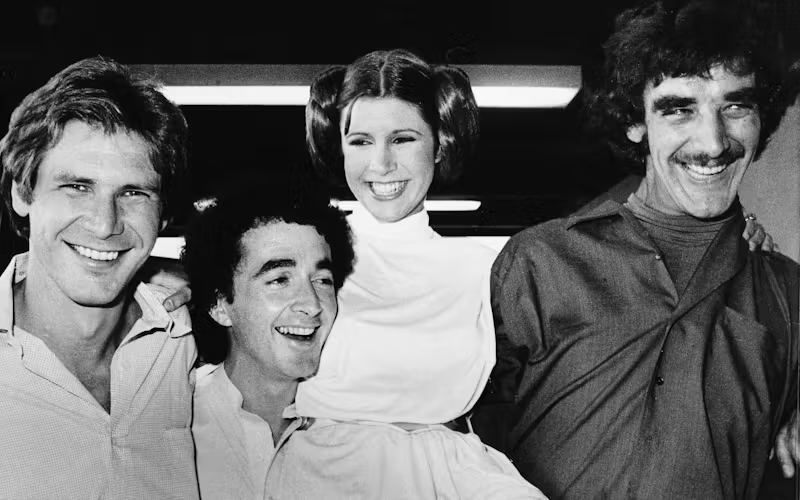The young American director George Lucas has made three features: THX 1138, which was about the future; American Graffiti, which was about adolescents; and now Star Wars, which is a “future” film for adolescents. Neither of the earlier pictures was distinguished for novelty or depth, but THX 1158 tried to compensate with visual and technical ingenuity, and American Graffiti found some good objective correlatives, in cinematic method, for its study of small-town teenagers. Star Wars, Lucas’s most expensive picture to date, doesn’t have the technological cleverness of his first, and it’s about nothing more than what it seems to be about.

This is Lucas’ tribute to Flash Gordon, and is now enthralling all those who feel that Flash Gordon needs a two-hour, eight-million-dollar tribute. There’s a glitzy attempt at profundity in the opening title which tells us that the story took place on a galaxy far away “a long time ago.” It really takes place in the science-fiction future, a place which is as fixed and fictitious for bad sci-fi writers as the Old West is for bad Western writers. Lucas’ script has Good Guys, Bad Guys, a princess, intergalactic imperialist war, staunch defenders of human and humanoid rights, secrets that will not be surrendered to the warlords—a whole spectrum of simplified earthly problems projected onto cardboard and illuminated with interminable ray-gun flashes and lastminute huge explosions.
About the dialogue there’s nothing to be said. In fact the dialogue itself can hardly be said: it sticks in the actors’ mouths like peanut butter. The acting is the School of Buster Crabbe, except for Alec Guinness who mumbles through on the way to his salary check. (A warlord, whose face we never see under his visored helmet, is played by David Prowse—a physical and vocal double for James Earl Jones.)
The only way that Star Wars could have been interesting was through its visual imagination and special effects. Both are unexceptional. I was not the world’s biggest fan of Kubrick’s 2001, but surely after that picture and after the work of Jordan Belson that preceded it, space films have an ingenuity-mark to aim at before they can engage our wonder. In no way does Lucas come up to the Kubrick/Belson level, and, to rely on my memory, his work here seems less inventive than in THX 1138.
But I saw at last—after about, say, 20 minutes—that Star Wars wasn’t meant to be ingenious in any way; it was meant to be exactly what it is. From Lucas’s view it certainly has not failed. I kept looking for an “edge,” to peer around the corny, solemn comic-book strophes; he was facing them frontally and full. This picture was made for those (particularly males) who carry a portable shrine within them of their adolescence, a chalice of a Self that was Better Then, before the world’s affairs or—in any complex way—sex intruded. Flash Gordon, Buck Rogers and their peers guard the portals of American innocence, and Star Wars is an unabashed, jaw-clenched tribute to the chastity still sacred beneath the middle-aged spread.
